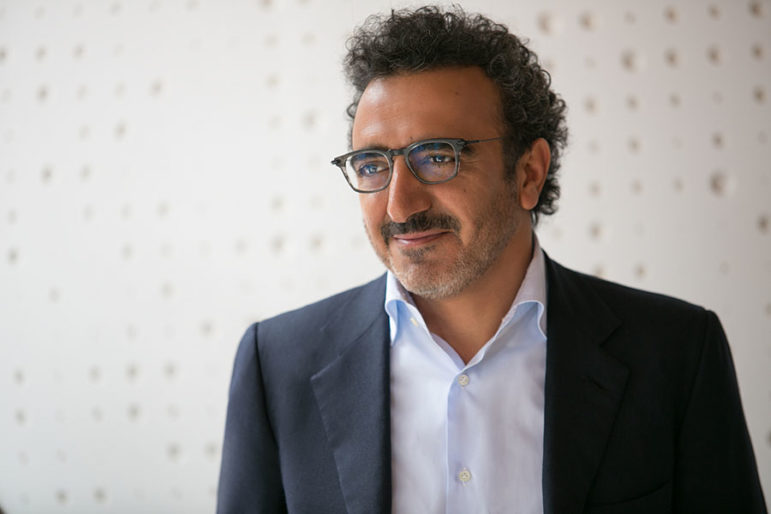
Hamdi Ulukaya, founder of the yogurt giant Chobani, and an immigrant himself, has been under siege of late for his advocacy and employment of refugees.
Ulukaya, who founded Chobani in 2007, has been a strong advocate for refugees from his native Turkey as well as other countries reeling from the impact of recent crises, like the wars in Iraq and Afghanistan. He has been outspoken on immigrant rights in highly public spaces such as the World Economic Forum. He founded The Tent Foundation to mobilize corporate leaders, and has committed most of his wealth to addressing the refugee crisis.
He has also put his advocacy into practice at Chobani. When Chobani opened a new factory in Twin Falls, Idaho, Ulukaya partnered with nonprofit resettlement centers in the area to recruit its new employees—a common hiring practice for the company. Once recruited, refugees were paid above the minimum wage, provided transportation, and equipped with translators to help them realize success in their new roles.
“The minute a refugee has a job, that’s the minute they stop being a refugee,” Ulukaya has said.
But this move agitates far-right politics. An increasingly nationalistic movement within the country mobilized by the upcoming presidential election is confronting Ulukaya’s empathy and compassion with anti-Muslim hate speech and death threats. The controversial website Breitbart, for example, published a story that attributes the rise of tuberculosis in Twin Falls, Idaho, with Chobani hiring refugees.
Sign up for our free newsletters
Subscribe to NPQ's newsletters to have our top stories delivered directly to your inbox.
By signing up, you agree to our privacy policy and terms of use, and to receive messages from NPQ and our partners.
The mayor of Twin Falls, Democrat Shawn Barigar, has also come under attack, including death threats, for supporting Chobani in what some are calling the “Islamification of the United States,” a response he calls “crazy.” Barigar points to the anti-immigration rhetoric made popular through Donald Trump’s campaign as the culprit. “Donald Trump really fueled a sentiment about immigration that is shared by a very small part of our community,” he said. “We are an agricultural center. We’ve depended on immigrants for a half-century or more.”
The counter-response in support of Chobani has grown increasingly strong. Chobani’s Twitter feed, for example, surges with gratitude and encouragement.
The New York Times reports that Chobani’s example as a corporate leader is being noticed and admired by his peers.
Chobani’s work with refugees went largely unnoticed until this January, when Mr. Ulukaya spoke at the World Economic Forum in Davos, Switzerland. His message—that corporations needed to do more to assist refugees—broke through the high-minded rhetoric.
“He was quite a sensation there,” said Kenneth Roth, executive director of Human Rights Watch, who attended the event. “Here was someone who went beyond the well-meaning chatter of Davos and was walking the walk.”
—Danielle Holly










